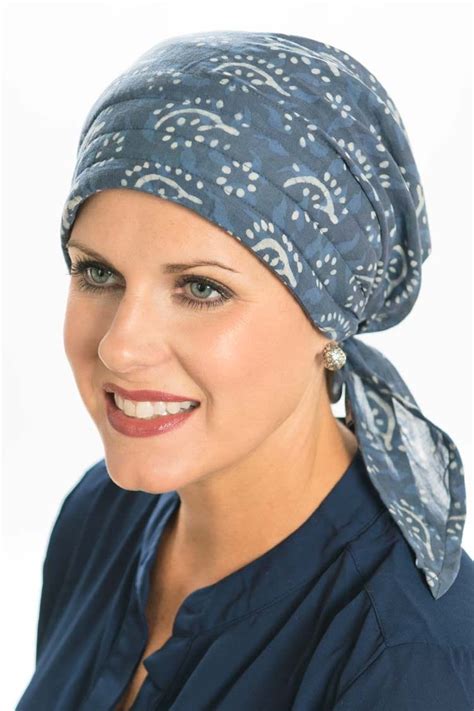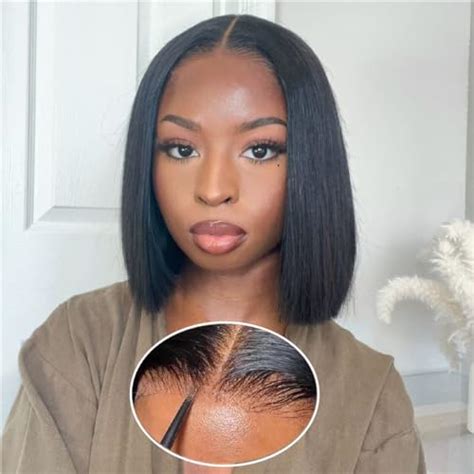For centuries, women have sought ways to enhance their appearance and achieve a fuller, more voluminous head of hair. While traditional wigs have been available for decades, lace wigs have emerged as the go-to solution for those desiring a natural and undetectable look.

What is a Lace Wig?
A lace wig is a type of wig that is made from a thin, transparent lace base. Individual strands of human hair are meticulously hand-tied or machine-sewn onto the lace, creating the illusion of a natural scalp. The lace base allows the wig to be blended seamlessly with the wearer’s natural hair, resulting in a virtually undetectable appearance.
Why Choose a Lace Wig?
There are countless reasons why women choose lace wigs over other hair replacement options. Some of the key benefits include:
-
Natural Look: Lace wigs provide an unmatched level of naturalness, seamlessly blending with the wearer’s own hair. The thin lace base mimics the scalp, allowing for realistic partings and styles.
-
Versatility: Lace wigs offer endless styling possibilities. They can be cut, colored, and styled just like natural hair, allowing for a wide range of looks and personalities.
-
Comfort: Lace wigs are lightweight and comfortable to wear. The breathable lace base allows for air circulation, preventing scalp irritation and discomfort.
Types of Lace Wigs
There are two main types of lace wigs:
-
Full Lace Wigs: These wigs have a lace cap that covers the entire head, providing the most natural and versatile look. They can be parted and styled in any direction.
-
Lace Front Wigs: These wigs have a lace frontal that covers the front of the head, extending a few inches back. They provide a more natural-looking hairline but are less versatile than full lace wigs.
Benefits of Human Hair Lace Wigs
In addition to the general benefits of lace wigs, human hair lace wigs offer several unique advantages:
-
Durability: Human hair wigs are more durable than synthetic wigs, lasting for up to a year with proper care.
-
Realistic Texture: Human hair wigs have a realistic texture that is indistinguishable from natural hair. They can be heat-styled to achieve various curls, waves, or straight styles.
-
Color Options: Human hair wigs come in a wide range of natural colors, allowing for a perfect match to the wearer’s natural hair. They can also be bleached or dyed to create custom colors.
Choosing the Right Lace Wig
Selecting the right lace wig is crucial to achieving a natural and flattering look. Here are some factors to consider:
-
Cap Size: Lace wigs come in various cap sizes to accommodate different head shapes. Measure your head circumference to determine the correct size.
-
Lace Color: The lace color should match your scalp tone as closely as possible for a seamless blend.
-
Hair Length and Texture: Choose a hair length and texture that complements your face shape and personal style.
Application and Maintenance
Applying and maintaining a lace wig requires some skill and patience. Follow these steps for a successful application:
-
Prepare the hair: Braid or cornrow your natural hair to create a flat base.
-
Apply wig glue: Apply a thin layer of wig glue around the hairline, avoiding the lace.
-
Place the wig: Gently place the wig on your head, aligning the hairline with your natural hairline.
-
Press and hold: Hold the wig in place for 2-3 minutes to allow the glue to set.
Proper maintenance is essential to extend the life of your lace wig. Follow these tips:
-
Wash regularly: Wash the wig every 2-3 weeks, using a gentle shampoo and conditioner.
-
Avoid heat: Excessive heat can damage the hair and the lace base. Limit the use of heat styling tools.
-
Store properly: When not in use, store the wig on a wig stand or in a cool, dry place.
Cost of Lace Wigs
The cost of lace wigs varies depending on the type, length, and quality of the hair. Full lace wigs with longer hair or high-quality human hair can be quite expensive, with prices ranging from $500 to over $3,000.
Market Trends
The global lace wig market is experiencing significant growth, driven by increasing demand for natural-looking hair replacement solutions. According to Zion Market Research, the market is projected to reach $10.45 billion by 2028, with a compound annual growth rate (CAGR) of 11.2%.
Innovative Applications
Lace wigs have not only revolutionized hair replacement but have also opened up new possibilities for creative expression. Here are some innovative applications for lace wigs:
-
Special Effects Makeup: Lace wigs can be used to create realistic-looking wounds, burns, and other special effects for film and theater.
-
Costume Design: Lace wigs play a vital role in costume design, allowing actors to transform into historical or fictional characters with different hair styles and colors.
-
Drag Performance: Drag performers often use lace wigs to enhance their characters’ looks and create exaggerated or theatrical hair styles.
Tables for Easy Understanding
Table 1: Benefits of Lace Wigs
| Benefit | Description |
|---|---|
| Natural Look | Seamlessly blends with wearer’s own hair, creating a realistic appearance |
| Versatility | Can be cut, colored, and styled just like natural hair |
| Comfort | Lightweight and breathable, preventing scalp irritation |
Table 2: Types of Lace Wigs
| Type | Description |
|---|---|
| Full Lace Wigs | Lace cap covers the entire head, providing the most natural and versatile look |
| Lace Front Wigs | Lace frontal covers the front of the head, extending a few inches back |
Table 3: Choosing the Right Lace Wig
| Factor | Considerations |
|---|---|
| Cap Size | Measure head circumference to determine correct size |
| Lace Color | Match lace color to scalp tone |
| Hair Length and Texture | Choose a length and texture that complements face shape and style |
Table 4: Maintenance Tips for Lace Wigs
| Tip | Description |
|---|---|
| Wash Regularly | Wash every 2-3 weeks using gentle shampoo and conditioner |
| Avoid Heat | Limit use of heat styling tools to prevent damage |
| Store Properly | Store on a wig stand or in a cool, dry place when not in use |
